VitalBriefing has pursued an almost continuous process of recruitment for editorial positions over the past two years, reflecting the ever-faster expansion of our business. We’re on the hunt to hire freelance copywriters, journalists, editors and proofreaders to conduct media monitoring and create news briefings, write long-form articles and content marketing material, edit and proofread.
Our business thrives on the recruitment and onboarding of highly talented freelance journalists as we grow our rather unique standing in the global content marketplace as a “virtual outsource newsroom” that creates customised, top quality, journalistically-based content for clients across multiple industries and public sector organisations.
The nature of our products vary, as do the skills we look for in our recruits. In some cases, we want experience in a specific sector or industry; in others, we need a broad-based knowledge background – plus, of course, agility to learn quickly and apply new knowledge capably.
Many might assume that we’re talking the same skills, different people. Not true. In practice, our aim is to identify and harness the individual strengths of our editorial team rather than treat people as workhorses available for whatever tasks happen to arise.
Indeed, somebody who specialises at creating effective content marketing material will work on a very different project than a media monitoring expert.
It’s one of the reasons so many answer our offer of freelance journalist and freelance copywriter jobs — and stay with us. We’ve created a stable “global newsroom” in part as a result of this approach.
What makes a VitalBriefing freelance journalist?
So, what attributes and characteristics make a candidate particularly attractive to VitalBriefing?
It may be a background in a particular topic area. Much of what we do is centred on specific industries such as the financial sector and technology, especially IT and financial technology but also fields such as engineering, supply chain and sustainability. But many members of our “newsroom” have been recruited because of their wide experience in different types of written media.
Experience with a news agency will always catch our attention on a CV — it’s a sound assurance of versatility and flexibility, ability to learn on the job and to cope with demanding deadlines. The ability to synthesise a wide range of information and to express it coherently, fluently, concisely and hopefully with style and brio over a longer piece of work may come from a different career path, and we – and our clients – prize that, too.
Like our writers, editors must assess the value of a wide range of information – plus, the buck stops with them. (Don’t be intimidated, potential candidates. Our editors love working with us.) They’re responsible for ensuring that a piece of writing, whether a 50-word summary from a news briefing, or an 800-word thought leadership piece for a client, is fluent, clearly expressed and precise. They also confirm that the underlying information on which it is based is, in fact, accurate.
That’s important: fake news is one of the plagues or our time. A more insidious one is inaccurate news. The financial pressure of loss of advertising and paid readership bears down on traditional media, reducing editorial headcount and favouring the recruitment of young, inexperienced and cheap employees over those that are more senior, news-hardened but generally more expensive.
The consequences can be seen across many parts of the media – reduced in-depth understanding of topic areas, particularly in more complex fields such as finance and technology and errors ranging from inexactitude through incomprehension in writing to just plain factually wrong.
We’re the answer to those problems.
Clients who ask us to monitor news and competitors in areas of importance to their business rely on us to sift the true and relevant from what’s untrue or beside the point. That’s why, not surprisingly, we’re always on the prowl for those senior journalists who may not fit the business model of cash-strapped news organisations but who we know will bring a sharp and critical eye to the work that crosses their screen.
An editor is not a reporter
The best editor, in my book, has an encyclopaedic knowledge of the world, a pedant’s eye for grammatical infelicity and, above all, a dedication to ensuring that every piece of writing they handle is easy, engaging and accessible to read, even if the subject matter is technically complex. That usually comes with what non-editors might find find a slightly overheated hatred of clichés, jargon and excessive use of acronyms.
Let’s not forget, either, the unsung heroes of publishing, online and offline: the proofreaders who protect us from fat fingers, misplaced decimal points and other momentary aberrations that sometimes impair the writing process. It’s the fact you you don’t notice them that shows what a good job they do. And their absence is ubiquitous in all that sloppy, mistake-riddled content you read all over the internet.
Does this encompass all the skills and attributes VitalBriefing is looking for in its editorial staff? Not at all. We always keep an eye out for singular talents that may not fit our preconceptions — that could one day turn out to be a perfect fit for a client’s needs. Often that day comes around sooner than we expect.
So, if any of these descriptions fit you or anyone you know, please send them our way. Email us at jobs@vitalbriefing.com, or get in touch via LinkedIn.
Alternatively, if you’d like to know a bit more about VitalBriefing and what our company stands for, check out these company blog posts:

